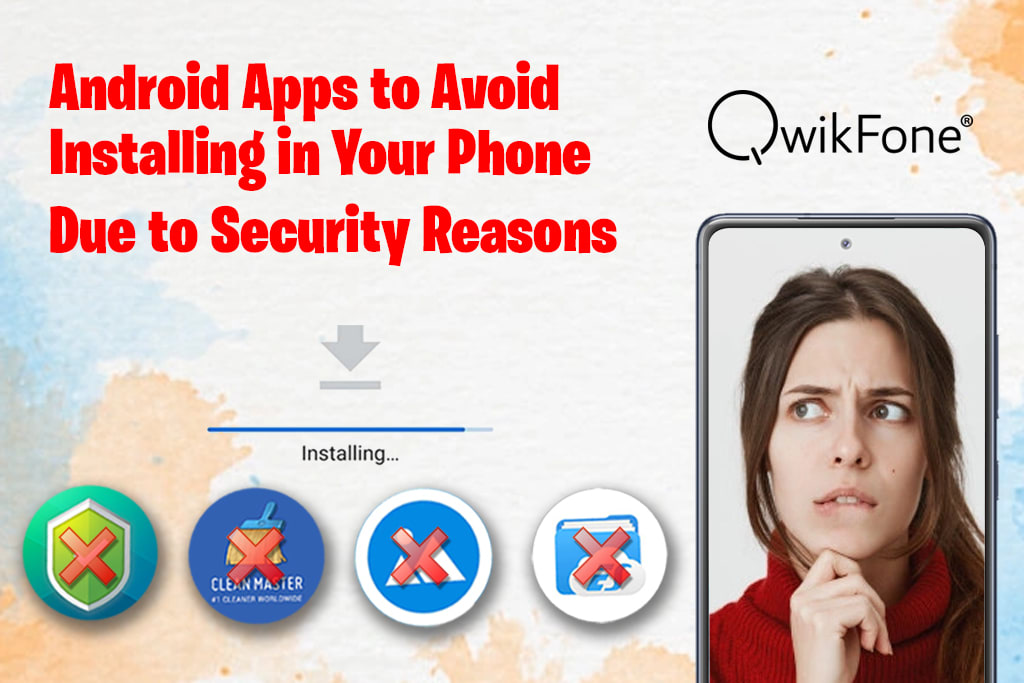
Hackers are not a new issue today, but it's still frustrating to fall victim to their schemes. After all, your smartphone holds almost all of your valuable data. Having your mobile phone hacked is a massive invasion of privacy.
From advanced security breaches to simply listening in on unsecured internet connections, phone hacking involves someone forcing access into your phone or its communications. Phone hacking may also be about physical theft of your phone and someone forcibly hacking into the device via methods like brute force.
Smartphones are always a target for criminals since these devices contain all of the users' private accounts and data. These include banking information, email, social media, among others.
Remember that phone hacking can happen to all kinds of phones, such as iPhones and Androids. As such, you need to keep your phone and its contents safe and secure. What you need is to develop a strategy for protecting your personal information.
Here are some of the ways on how to secure Android phones from hackers:
- Update your OS and apps. Everyone knows that software companies are constantly updating software. These software updates and bug fixes consist of security improvements for Android phones that help protect your smartphone against data breaches and intrusions. Updating your OS and apps will make it harder for hackers to break into your smartphone. So when there is an update available, you should install it immediately.
- Avoid using public WiFi. Public or open WiFi is open season for all kinds of online mischief, including hacking. To avoid phone hacking, you should try to use only your private mobile connection whenever possible. Switch off WiFi on your smartphone when you're in public places, so your device won't automatically connect with any WiFi.
- Keep your mobile phone number private. You should not immediately offer your mobile phone number to any app that prompts you. That's because the more places that have your phone number, the more vulnerable you are to SMS intrusions and scams, including invasion of your protected 2FA accounts. You might want to consider adding a second line to your mobile phone. Google Voice is a brilliant way to protect your phone number.
- Don't overshare on social media. Yes, you can use your real name on social media like Facebook and Twitter. However, you should avoid sharing several revealing information about yourself on social networks. The things you should avoid sharing include the home towns, specific addresses, specific work locations, phone numbers, family names, and other details hackers can use to track you.
- Use strong passwords. Make sure to use passwords not easily cracked by hackers. Strong passwords should contain at least 16 to 20 characters with a mix of letters and numbers, upper and lowercase letters, and symbols. You should avoid using your birthday, your pet's name, or the same password for everything.
What are the Android Apps you should not install on your phone?
Did you know that there are popular Android apps that are extremely popular but can compromise your phone's security and privacy? If you are not careful about what apps to download and install, you could find yourself being tracked, hacked, or conned.
The following are Android apps you should not install on your phone:
- QuickPic Gallery. Believe it or not, this app used to be a friendly and easy-to-use photo gallery. The infamous Chinese company, Cheetah Mobile, bought the app in 2015. It was only after that that it became a harmful app for Android since the company started uploading users' data to their servers. The app was removed from the Google Play Store in late 2018 but returned in 2019. At present, there are hundreds of QuickPic incarnations. Due to that, it makes it hard to tell which is the original version. To be safe, you should install any of them.
- ES File Explorer. This app was one of the most popular file explorer apps five years ago. What makes this app "bad" is its free version is being pumped full of bloatware and ad-ware. What this app does is endlessly nag you to download additional apps through a notification bar that pop-ups. Unfortunately, you can't disable them. However, it was in April 2019 that things got worse. ES File Explorer was out of the Play Store for committing click fraud on its ads. Click fraud applies to practices of automatically clicking background ads on users' devices without them being aware.
- Clean Master. It is one of the popular speed booster, battery saver, and phone optimizer apps. Before developers removed this app in 2019, Clean Master had 600 million users and 26 million five-star reviews. Cheetah Mobile created this app. This company was renowned for packing ads, bloatware, and nag screens into its apps. You no longer need these RAM-saving apps like Clean Master. That's because Android has its native handler for assigning RAM.
- Almost every Antivirus App. There are several of these apps available in the Play Store. While they are not bad, they are largely unnecessary. That's why the biggest names in the industry market their apps' antivirus capabilities as part of a larger security package. However, if you install software from third-party sources or if you have a rooted device, these apps are worth considering. Do you need or want to install an antivirus app? You need to check that what you're installing is a full-fledged security package from a recognized provider.
What are the Android apps you should delete from your phone?
Believe it or not, you can still find dangerous apps on Google Play Store that can steal your banking details and even bypass two-factor authentication. These "dangerous Android apps you need to delete" have this Clast82 which can install any malware on your phone.
If you’re not aware of this app, the Clast82 includes a mobile remote access trojan to control infected mobile phones. It usually uses the AlienBot banking malware as a service. The Clast82 can take complete control over your phone. It makes it as if the hacker is holding your mobile device physically.
The following are dangerous Android apps you need to delete from your phone as these are malicious Clast82 apps:
- Cake VPN
- Pacific VPN
- eVPN
- BeatPlayer
- QR/Barcode Sanner MAX
- Music Player
- tooltipnatorlibrary
- QRecorder
If you have any of the above mentioned apps, you should delete them right away, or you will risk having your financial credentials in the hands of dangerous people. If you want to be safe, it is well-advised that you change your online banking and other financial account passwords.
Can I hack-proof my Android phone?
Are you wondering if there's a way to hack-proof your phone? No one is immune to hacking attacks. However, you can protect yourself and your smartphone by doing the following:
- Don't leave online services unlocked. While auto-login is a very convenient feature, it is a huge liability since the intruder only needs to open your browser to access all of your online accounts. As such, experts recommend that you don't use auto-login. But if you must, you should use a password manager app that requires you to re-enter a master password regularly. Moreover, you should not use the same password for more than one app or service. You see, if that one password gets found out, someone can use it to access a whole range of private information.
- Be prepared to track and lock your phone. Create a plan in case someone steals your phone. This way, you will know your data is safe. One of the things you can do is to set your phone to automatically erase itself after a certain number of incorrect attempts to enter the passcode. Another way is Google's "find my device" feature, in which you can locate your phone on a map and remotely lock or erase it. You can also make a missing phone ring if you need to. This feature helps draw attention to the thief.
- Make it hard for intruders to get in. Like a house, you can make things difficult for the thief to access your private information. You should make sure that your phone is locked when not in use. You use fingerprints or facial recognition. In addition, you should be wary of smart unlock features.
If you think your smartphone is compromised and want a new Android phone, you might want to choose a refurbished Samsung phone instead. For a secure purchase, experts recommend that you buy your mobile device from a reputable refurbished phone company, like QwikFone.
You can choose your favorite mobile phone from the refurbished Samsung phones and buy it pristine at QwikFone. What's more, all refurbished Samsung phones from this company come with impressive deal terms, including a free, complete set of the chosen device's most essential accessories, a return policy that will guarantee you a full refund, and a 12-month warranty policy. Check this out at https://qwikfone.com/collections/refurbished-samsung-unlocked-phones.
About the Creator
QwikFone
QwikFone is one of the first companies to provide 360° mobile solutions in the UK market. QwikFone developed 3 business lines:
1- Mobile repair center
2- Mobile spare parts supply services
3- Pristine refurbished mobile phones






Comments
There are no comments for this story
Be the first to respond and start the conversation.